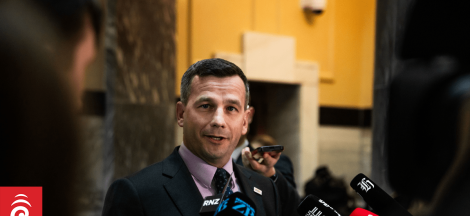
David Moreau.
Photo/Supplied.
The health
benefits of intermittent fasting are proven – but are you
less sharp mentally when deprived of food?
A
review of 71
studies from around the world offers reassurance for adults,
finding no meaningful difference in mental performance when
going without food for between about eight and 24
hours.
“People often worry that if they fast they
won’t be able to concentrate at work or study
effectively,” says Dr David Moreau, a neuroscientist at
the University of Auckland who was the senior author of the
paper in Psychological Bulletin.
“Our results
show that, for most adults, short-term fasting is unlikely
to have a major impact on mental
sharpness.”
However, children and adolescents tended
to perform more poorly, reinforcing the importance of a
proper breakfast before school.
There were also some
nuances.
Fasting people tended to perform worse in
tests later in the day, suggesting the lack of food may
amplify natural dips in circadian rhythm.
Tasks
involving food-related cues, such as judging portion sizes
or responding to food images, seemed to impede performance,
perhaps because hungry individuals get
distracted.
“It seems the brain is quite resilient
in the face of temporary food shortages,” says Moreau, who
works in the University’s School of Psychology, leading
the Brain Dynamics
Lab.
Advertisement – scroll to continue reading
“Humans evolved with periods of food
scarcity, so it makes sense our cognitive systems can
function well without constant refuelling,” he says.
“That said, children and teenagers appear more vulnerable,
which fits with what we know about their high energy
demands.”
In the studies, the median fasting
duration was 12 hours and only a few extended beyond 24
hours.
Lead author Dr Christoph Bamberg was a PhD
student at the University of Auckland and is now at Paris
Lodron University Salzburg.
“These results don’t
mean fasting is risk-free for everyone,” says Moreau.
“People with health conditions, children, and those
fasting for extended periods may still experience negative
effects. Our review highlights the need for careful
consideration in these groups.”
The study was
supported by the Marsden Fund and an Early Career Research
Excellence Award from the University.
Moreau’s
interest in human performance extends to sport – he
formerly represented France in
wrestling.
Source link




 NZ Herald Afternoon Update | Big day for Te Pāti Māori and Fire manager calls for fireworks ban
NZ Herald Afternoon Update | Big day for Te Pāti Māori and Fire manager calls for fireworks ban